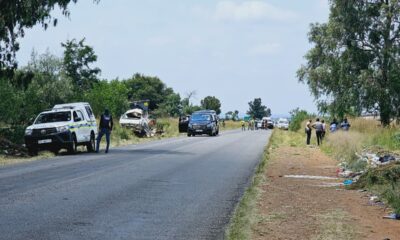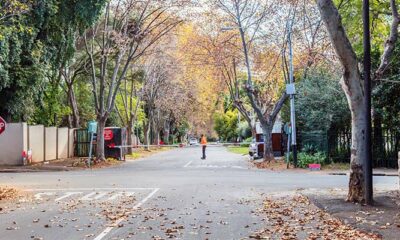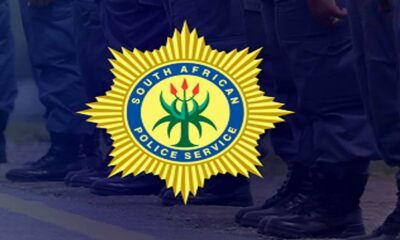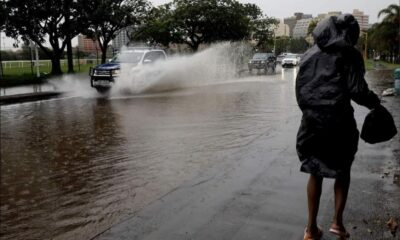News
Policing Without Trust: How SAPS Corruption is Undermining Community Safety
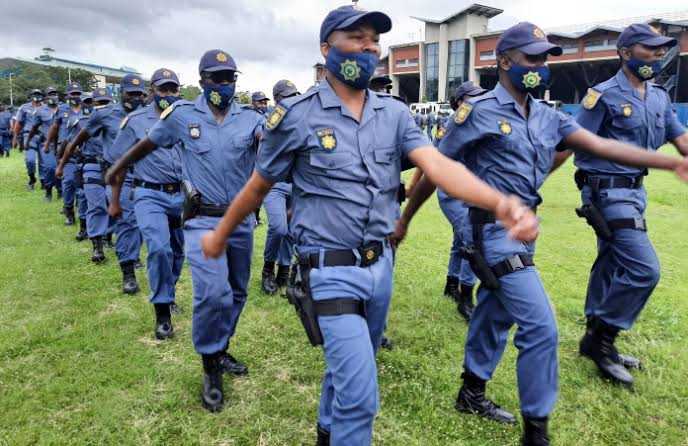
Policing Without Trust: How SAPS Corruption is Breaking Community Safety Structures
South Africans are increasingly losing faith in the police meant to protect them. Rampant corruption within the South African Police Service (SAPS) is not just a headlineit’s a daily reality for residents, community policing forum (CPF) members, and local leaders across the country.
Fear Behind the Badge
In Soweto, Rosina Mosehla describes the chilling contradiction at the heart of public safety: “Corruption is rife within the police. We no longer feel safe because the people who are supposed to protect us are demanding money from us. The CPFs are trying, but the corrupt police make it impossible for them to do their work.”
For many, the sense of security has evaporated. “We don’t know who to turn to anymore… We are supposed to trust the policebut who protects us from them?” Mosehla asked, echoing frustration from communities nationwide.
When Corruption Flows Into Community Structures
Community policing forums were designed to bridge the gap between law enforcement and the public. Instead, in Gauteng and other provinces, corruption has seeped into the very structures meant to safeguard communities.
Thokozani Jacob Masilela, chairperson of the Gauteng CPF board, said, “At Johannesburg Central Police Station, corruption has even been adopted by crime wardens and, to some extent, CPF patrollers.”
In affluent districts like Sandton and Rosebank, Masilela explains, corruption takes a more sophisticated form, with officers aligning themselves with influential individuals and businesses. The result: communities lose trust, and criminals exploit the system.
Political Interference Complicates the Fight
Even when CPFs function, political meddling undermines accountability. Masilela noted that interference in Florida, Cleveland, and Rosebank had crippled CPFs in those areas.
“It affects CPF morale,” he said. “Police behave when we are present, but once we leave, corruption resumes.”
Ward councillor Lyborn Ndou of Cosmo City warned that this breakdown in trust has real consequences: “When the community reports perpetrators, police take bribes, and sometimes the perpetrators end up killing the victim. People start taking the law into their own hands.”
A National Crisis Unveiled
KwaZulu-Natal Police Commissioner Lieutenant General Nhlanhla Mkhwanazi recently exposed a disturbing network of corruption involving senior officers, criminal syndicates, politicians, and even members of the judiciary. The revelations underscore how deeply entrenched the problem is.
Criminologists warn that this level of corruption is “elusive and detrimental.” Professor Witness Maluleke of the University of Limpopo said, “It will take many years to curtail, and it strongly affects community policing because it dents citizens’ confidence and trust.”
Professor Kholofelo Rakubu of Tshwane University of Technology echoed these concerns, noting that CPFs are often reduced to symbolic roles because criminal syndicates have infiltrated police ranks. Whistleblowers are left vulnerable, and internal disciplinary measures are too slow or politically compromised to restore accountability.
Uneven Reality Across Provinces
While corruption dominates headlines, not all provinces are affected equally. In Limpopo, CPF chairperson Frans Kgasago reported that all 106 CPFs are active, although the arrest of four officers for using police vehicles in a robbery still shook public confidence.
Contrast that with the Eastern Cape, where CPF chairperson Gonavan Buys said corruption prevents basic community engagement. “Around half of our CPFs are active but struggling, and 40% are not active at all,” Buys said.
In the Western Cape, Francina Lucas warned that the integrity of community policing is in jeopardy. “When CPF members are exposed to serious safety risks and witness corruption firsthand, trust and cooperation crumble.”
The High Cost of Broken Trust
Experts warn that without public confidence, community policing cannot function. The very framework intended to foster collaboration, transparency, and accountability is collapsing under the weight of corruption.
Rakubu summed it up: “Corruption discourages communities from reporting crimes. People fear retaliation or believe nothing will be done. That loss of faith has become one of the biggest barriers to safety in South Africa.”
The call from communities, academics, and reform advocates is clear: systemic reform, independent whistleblower protections, and a crackdown on political interference are urgently needed to restore trust and to ensure that South Africans can once again feel safe under the law.
{Source: IOL}
Follow Joburg ETC on Facebook, Twitter , TikTok and Instagram
For more News in Johannesburg, visit joburgetc.com

